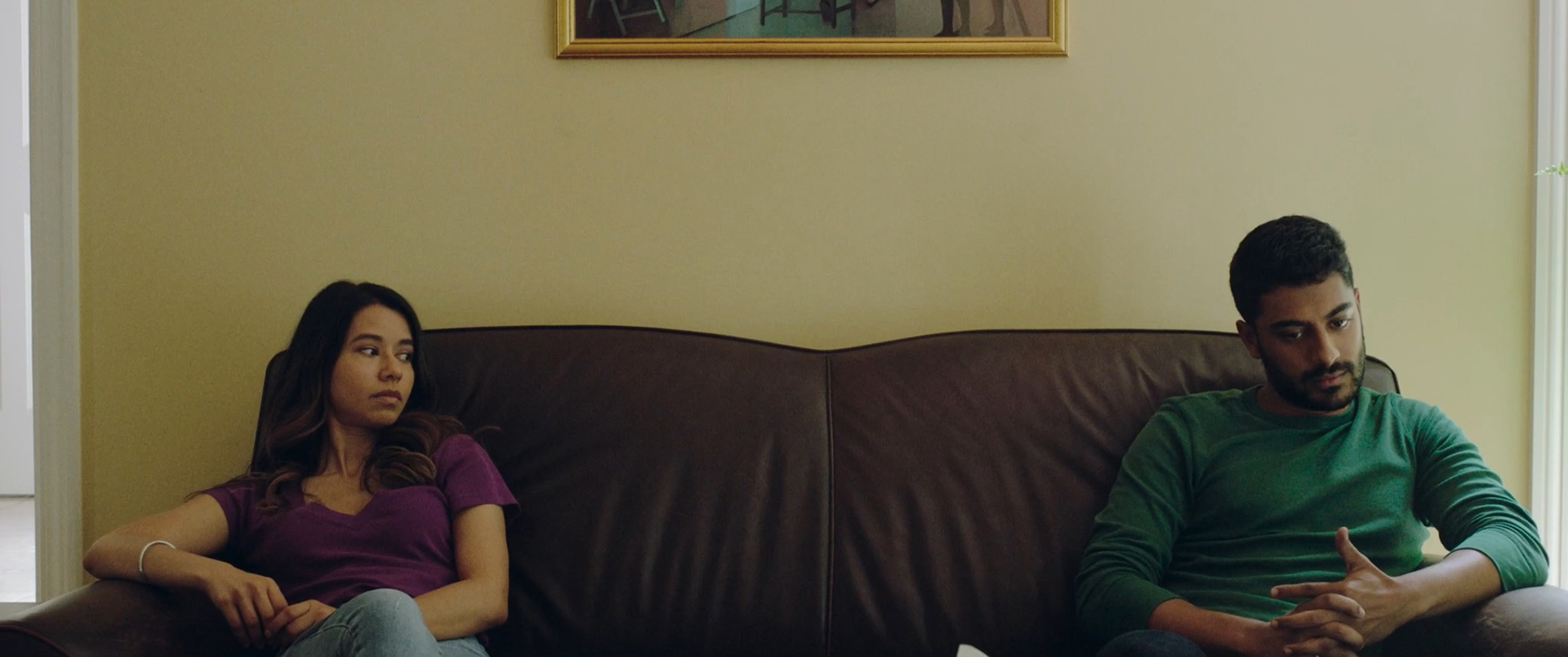Monica Chowdry (Sujata Day) was everything her Indian immigrant parents could have hoped from a child. Not only did she win the national Scribbs Spelling Bee, but she also became somewhat of a young intellectual celebrity courtesy of the victory tour with photographic keepsakes alongside Oprah Winfrey and fellow Pittsburgh-area native M. Night Shyamalan as well as an episode of television with host LeVar Burton that her mother (Anna Khaja’s Jaya) still watches to this day almost twenty years later. The sky was the limit and expectations were astronomical, yet here she is still living at home and working as a tutor for new, hopeful spelling champions. Not even confirmation of a research job in Cleveland can light a fire. Maybe this quiet life is all she wanted.
It’s a relatable and familiar dynamic wherein unwanted attention and external pressures have just as much of a chance to burn you out as they do prop you up. Whether it’s about demanding the pursuit of high-paying careers (doctors, lawyers, etc.) or athletic dreams (learning a sport before you’re old enough to figure out if you like playing), so many children are pushed onto paths without any regard for their own ambitions or interests. Not to say Monica’s goals didn’t align with those of her parents. They did. At a certain point, however, fears and anxieties set in. The desire to maintain a status quo that works rather than risk failing in an attempt to break the cycle feels too comfortable to give up. She’s not alone either.
While Definition Please leans into a similar trajectory to Good Will Hunting with Monica’s brother Sonny (Ritesh Rajan) wishing to return home from California and find her gone in pursuit of her dreams, the feeling is mutual. In his case, however, it’s less about success and independence than it is about mental health. That doesn’t mean Day—who writes and directs as well as stars—diminishes the character into a device that furthers Monica’s progression forward. She makes certain that his demons are given the exact same weight as hers because they’re both born from the same source. Their parents were very demanding. Their youthful mistakes never easily forgiven. Sonny knew that truth first and chose to protect Monica from it. She rapidly excelled, he gradually got lost.
And here they are with the scars of that childhood still hurting. They haven’t spoken in the year since their father passed and have only agreed to weather this week under the same roof because Jaya is sick and unsure how many more chances there’ll be to see her children together. Monica isn’t happy about the situation. She’s made it known for some time that she doesn’t want Sonny in her life unless he agrees to therapy and medication. Such imperatives, however, are hardly helpful. Take a step back and see that they are no better than the ones their father projected upon them—the ones that made him feel he would never be good enough and her worry that they thought she was better than she was.
Day does a strong job juggling the drama of this scenario with the comedic tone that she uses to endear her characters to us and keep the severity of the psychological torment from overtaking the whole. That balance isn’t without its sticking points, though, such as not discovering Sonny is bi-polar until late in the game. Not knowing forces some of the dialogue to have us jump to conclusions as far as Monica and Jaya talking about violence (Did he hurt them?) or secret safety deposit boxes (Did he steal from them?) without the full context. We become quick to judge him as a result—which I think is intentional—so that the slow reveal of where his anger arises in relation to Monica can reach maximum impact.
These aren’t therefore easy themes to absorb and realizations like Jaya admitting she and her late husband made mistakes provide three-dimensional clarity to events one simply cannot process in the moment. Day is giving voice to the culture clash many second-generation immigrants deal with thanks to their mix of traditional demands and progressive possibilities. She’s drawn a “golden child” yet to meet her potential and a “black sheep” who escaped despite still always feeling less than. Add peripheral examples of “other” via race (Monica’s love interest Richie, as played by Jake Choi, talks about his racist uncle while her student, Maya Kapoor’s Payal, deals with racist bullying), stigmatism (Sonny’s mental health issues and Monica’s best friend’s, Lalaine’s Krista, history of substance abuse), and many more for increased complexity.
I don’t think it’s too much, though. Some aspects might be underserved a bit while others are exploited for comedy, but none feel out-of-place. There are a couple iffy moments as far as objectification (Sonal Shah’s Dr. Ali has no shame where it comes to hitting on Sonny) and gaslighting (Jaya’s ploy to get the family back together may not be as endearingly innocent as the script wants us to believe) goes, but they aren’t too difficult to look past for what works. Definition Please‘s strength is its authenticity and normalization of minorities away from blatant stereotypes. It acknowledges the struggles endured with honesty and humor in ways that are as relatable as they are unique. Unlike Monica’s spelling words, our origins and identities aren’t so stringently defined.
Definition Please streams on Netflix starting January 21.

